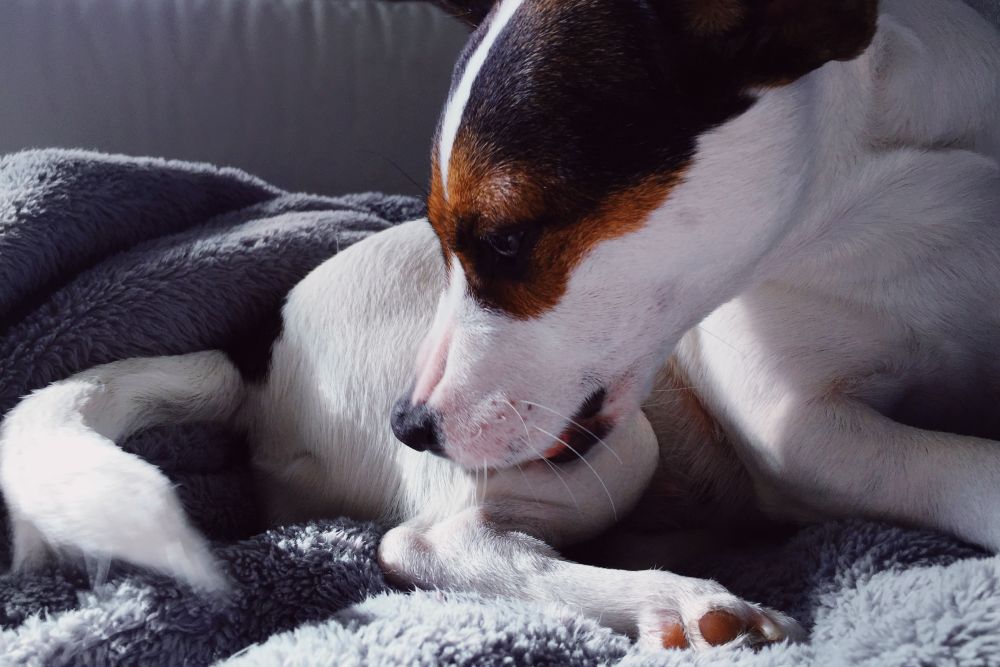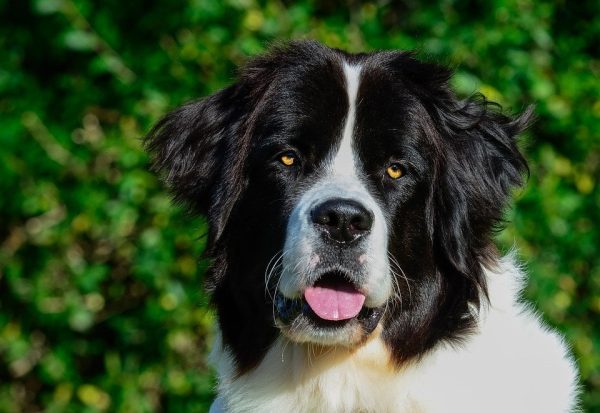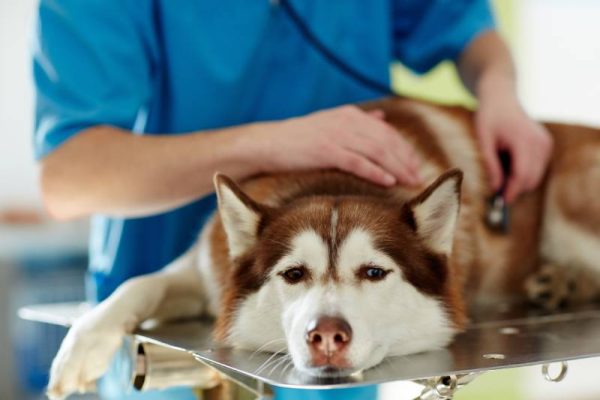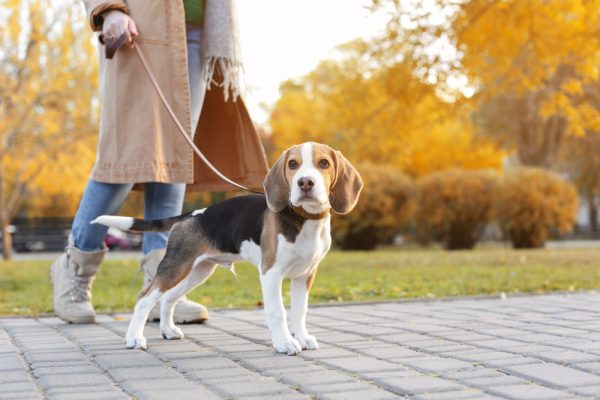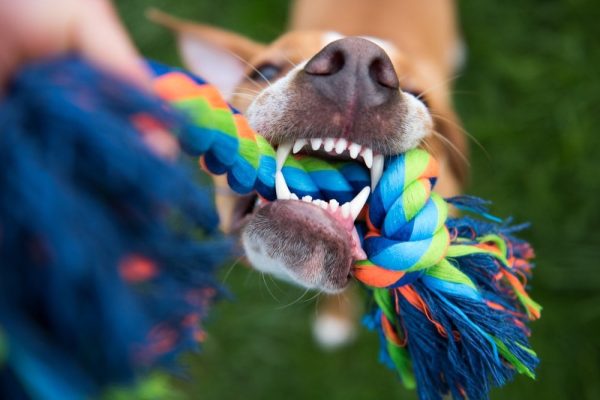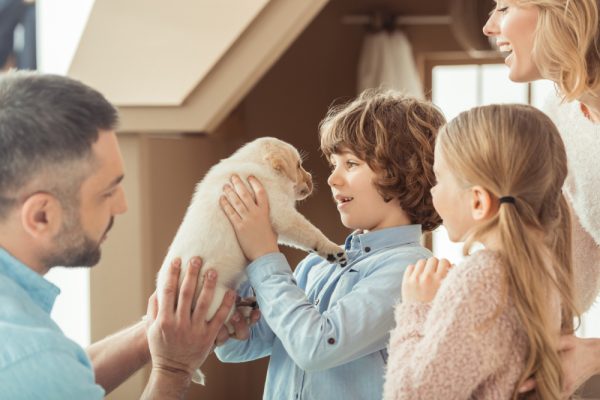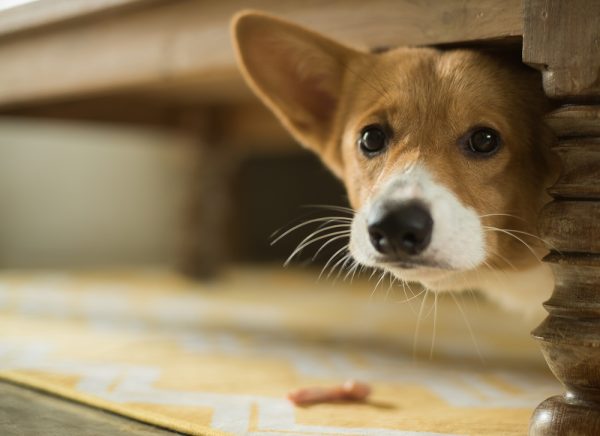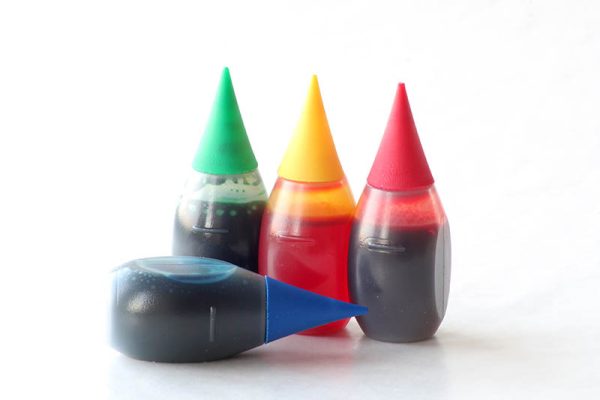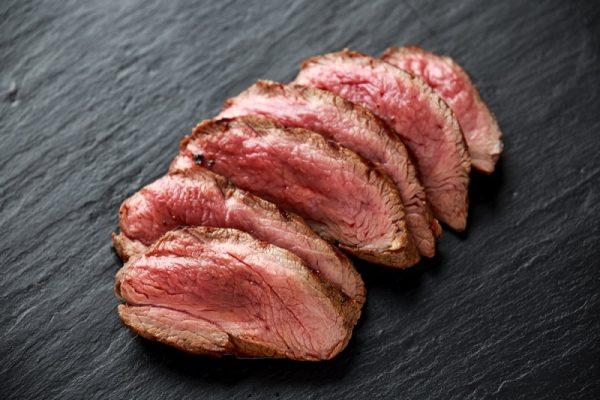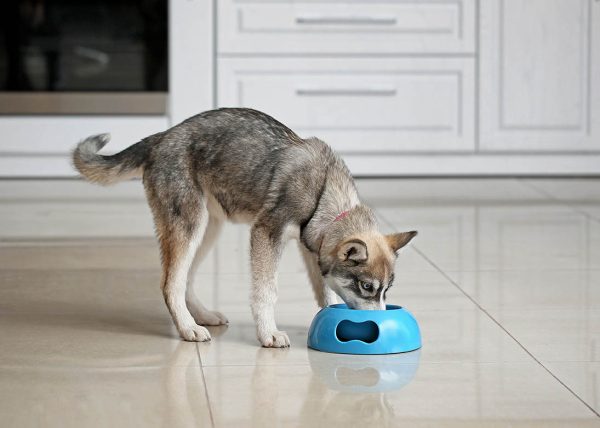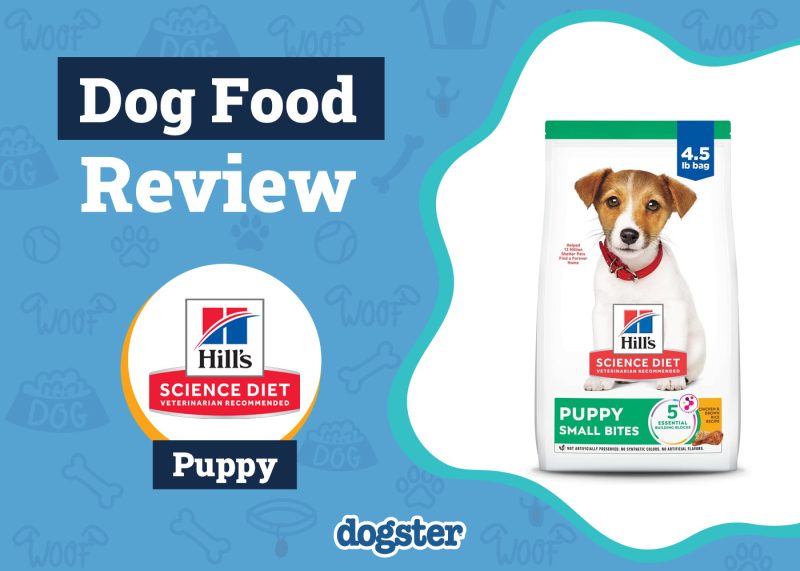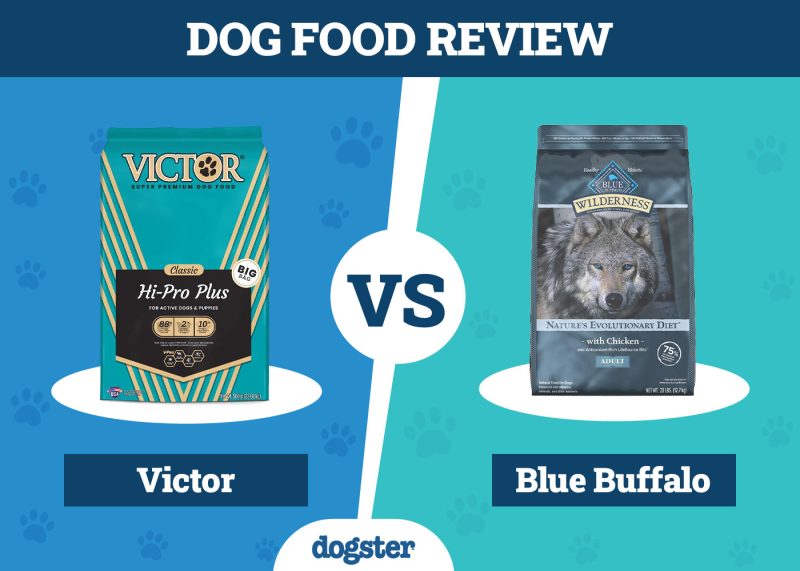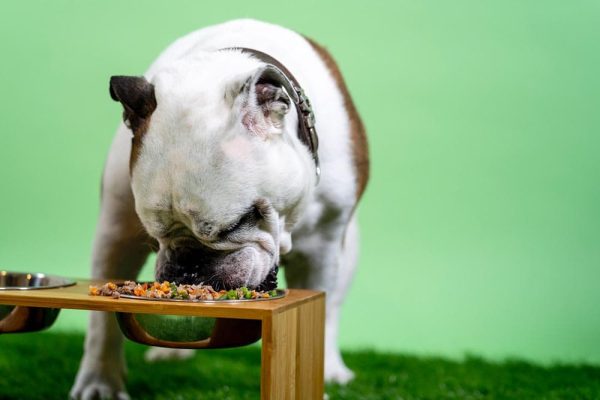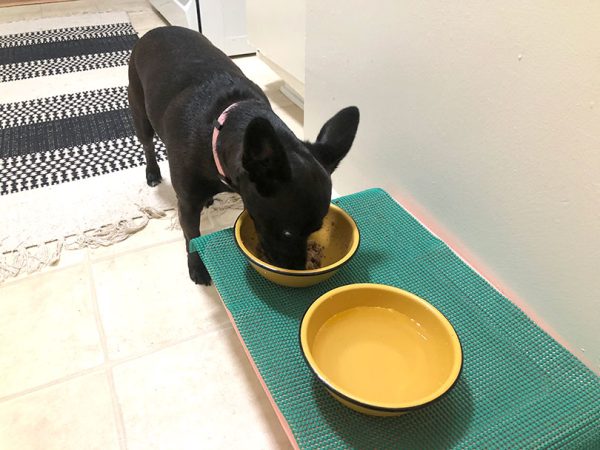In this article
View 2 More +It’s not unusual for dogs to lick themselves at bedtime (or for some, in the middle of the night). More often than not, grooming right before sleeping is no cause for worry; it’s likely just a relaxing ritual for your dog.
However, grooming can be a problem when it’s excessive and causes obvious discomfort to your dog. So, how can you tell when it’s a problem? There are obvious signs, and we’re here to share those with you.

Why Dogs Groom Before Bed
Nothing hits the spot like a good shower and face scrub before bed. Feeling clean and fresh can help you relax and sleep better, and it’s no different with dogs. Dogs collect a lot of grime in their fur, and a good grooming session before bed may help set the mood and relax your pup before falling asleep.
There’s also not much going on at bedtime. The lights are out, the kids and other animals are asleep, the TV is off—why not take the opportunity and groom when there’s nothing else to do?
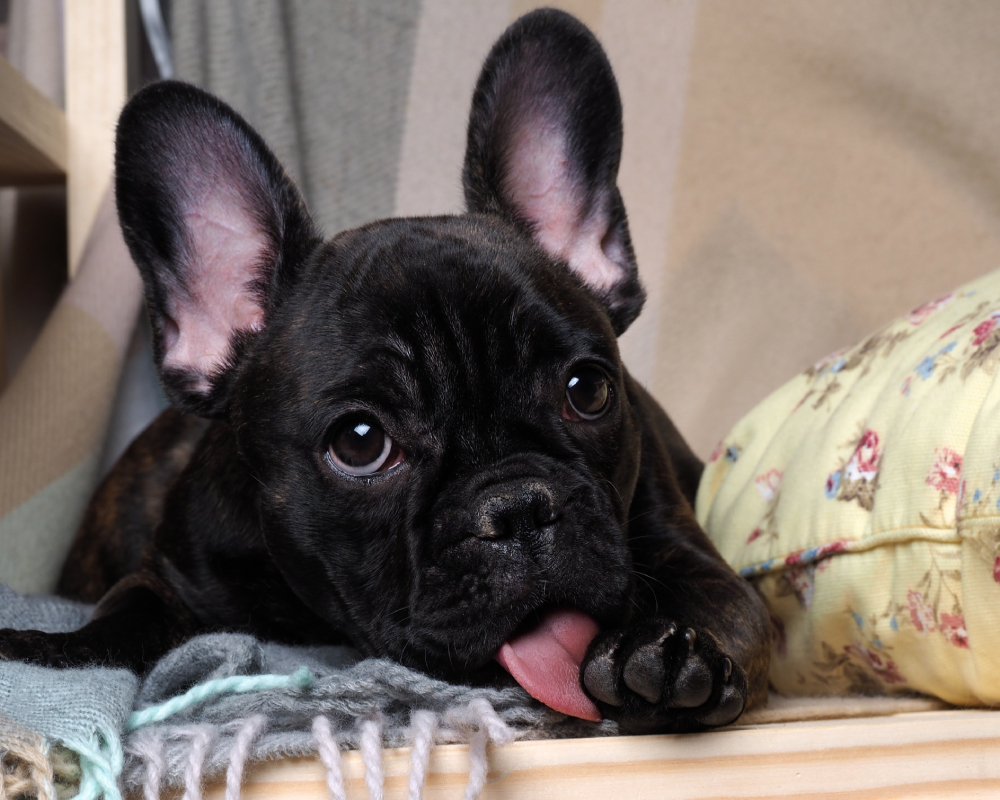
When Excessive Grooming Becomes a Problem
Dogs who excessively lick themselves typically aren’t cleaning. Instead, they’re trying to alleviate an uncomfortable ailment.
Excessive grooming becomes problematic when the constant licking irritates your dog’s skin and even disrupts their daily routine and sleep. The urge to itch and lick can be so severe that dogs can’t live normal lives.
The most obvious signs of discomfort include any kind of vocalizing like whimpering and moaning. This is typically paired with:
- Noticeable hair loss and skin redness
- Oozing anywhere on the body
- Matted fur
- Inability to sleep, relax, play, or do any other normal activity

The 6 Causes of Excessive Licking in Dogs
There are several reasons why a dog is excessively licking, so it can take time to uncover the real reason. Veterinarians try to rule out the most common and serious conditions first.
1. Parasites
Fleas, ticks, mites, and other parasites can cause extreme itchiness, depending on the severity. Your veterinarian will need to definitively diagnose external parasites on your dog in order to determine the best treatment. In some cases, some parasites can transfer over to humans, so it’s imperative to identify them quickly.

2. Infection
Yeast and fungal infections can be very itchy and typically are oozy, smelly, and inflamed. Yeast thrives in warm, moist environments like in the groin and between the toes. You may also notice skin discoloration, redness and hair loss.
Your vet can decide on the best tests and treatments to pursue so your dog can feel better as soon as possible.
3. Environmental Allergies
Dust, pollen, artificial scents, mold, and mildew—these are just a few environmental allergies that make your dog rub their face, scratch their back, and chew on their legs. Environmental allergies are often seasonal, but household allergies, like mold, can be present year-round.
Unfortunately, a permanent cure for environmental allergies is usually impossible. Another flare-up is almost certain. Even so, your vet can help you control the flare-ups to keep your dog as comfortable as possible. Special shampoos, antihistamines, anti-inflammatories, and proper nutrition help leaps and bounds when dealing with allergies.
4. Food Allergies
Some dogs develop food allergies to certain ingredients in their food. The most common are chicken, eggs, dairy, beef, soy, and wheat gluten, although any food is a candidate for a potential allergy. That’s why nailing down the real allergy can be a long process.
Veterinarians typically prescribe a hypoallergenic diet for 8 to 12 weeks to see if your dog feels a noticeable difference. If your dog improves, the next step is to find out which ingredient is the culprit.
Blood tests can also help determine food allergies. Your veterinarian can tell you if it’s worth pursuing.
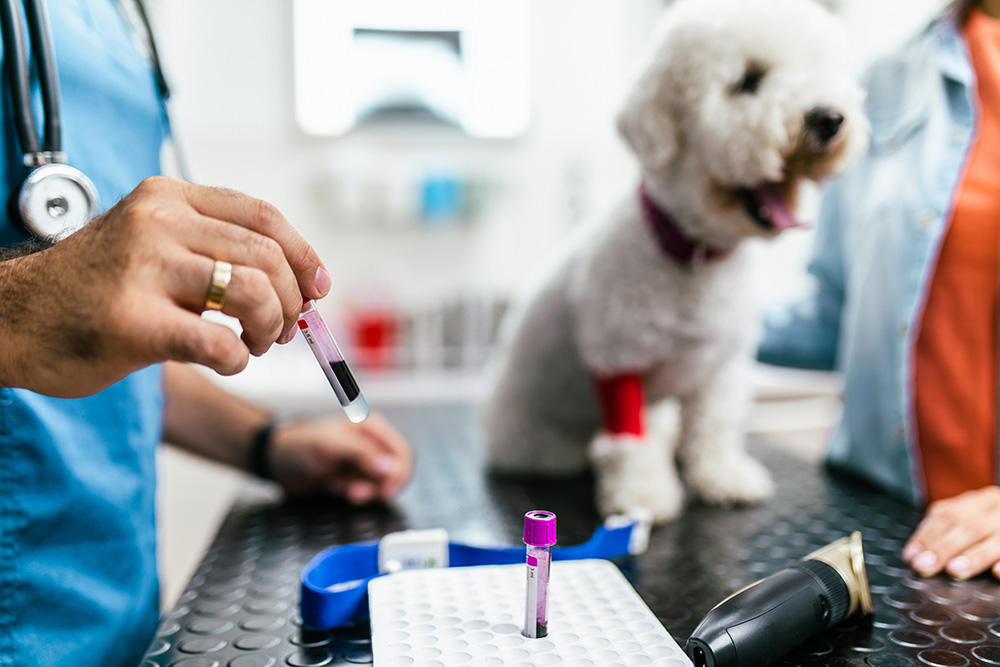
5. Pain
Arthritis, wounds, insect bites, and fractures can cause your dog to lick, chew, and limp. Pay attention to where your dog chews and licks often and examine the area. If it’s something small like a bug bite, cleaning the area with mild soap or icing the area for 5 minutes can solve the problem.
However, more serious conditions like arthritis, fractures, and joint disease require a vet’s attention to determine the best course of action.
6. Behavioral Issues
Boredom, anxiety, and fear can lead to excessive licking. Exercise, training, and play are great ways to take the jitters and restlessness out of your dog. This is especially true if you notice your dog licking themself anytime they’re unproductive. Daily walks, obedience training, and food puzzles can uplift your dog’s spirits and distract them from licking themself.
Other reasons for stress and anxiety, like thunderstorms and separation, may require stronger forms of treatment if your dog is destroying their fur and skin. Working with your vet will help keep your pet at ease so they can live their best life.
If you need to speak with a vet but can't get to one, head over to PangoVet. It's our online service where you can talk to a vet online and get the advice you need for your pet — all at an affordable price!

Conclusion
Licking before bed can be completely normal as long as your dog is gentle with their skin and fur. We never like to think about our pets feeling discomfort and pain, but there are times when they do and it’s up to us to find a solution. If you believe your dog has a problem with overgrooming, schedule an examination with your vet as soon as you can. You don’t want you or your dog missing out on good sleep now, do you?
Featured Image Credit: Veronika Gaudet, Shutterstock
